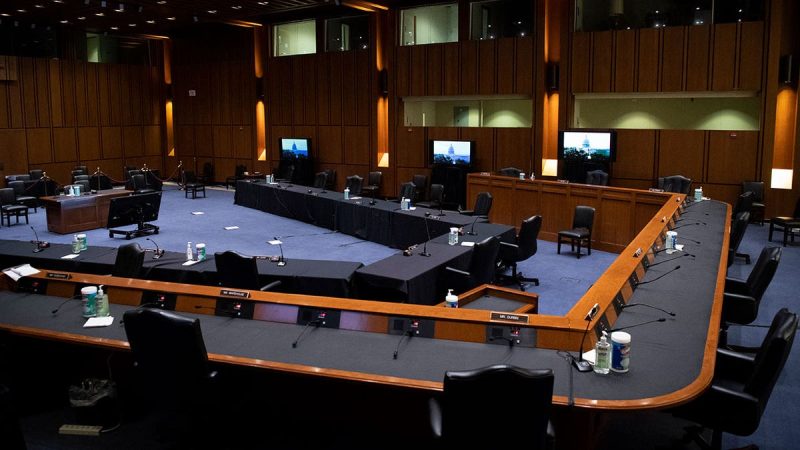Aid group accuses Haiti police of taking part in deadly attack on ambulance
Senate sex tape: Capitol Police decline to press charges


The U.S. Capitol Police announced Thursday they have declined to press charges following the filming of a ‘sex video that was recorded inside the Hart Senate Office Building on the morning of Wednesday, December 13.
‘After consulting with federal and local prosecutors, as well as doing a comprehensive investigation and review of possible charges, it was determined that — despite a likely violation of Congressional policy — there is currently no evidence that a crime was committed,’ the agency said in a statement to Fox News.
‘Although the hearing room was not open to the public at the time, the Congressional staffer involved had access to the room. The two people of interest were not cooperative, nor were the elements of any of the possible crimes met,’ Capitol Police continued.
‘The Congressional staffer, who has since resigned from his job, exercised his Fifth Amendment right to remain silent and refused to talk to us,’ authorities also said. ‘Our investigators are willing to review new evidence should any come to light.’
The Daily Caller, which first broke news of the video, reported that the footage was leaked in a chat and was ‘shared in a private group for gay men in politics.’
A staff member for Sen. Ben Cardin, D-Md., was later fired over the video.
‘I was angry. I was disappointed,’ Cardin told Fox News in December when speaking about the scandal. ‘It’s a breach of trust.’
Cardin would not name the staffer in question, only saying it was a ‘personnel issue.’ The Democratic Senator said he was not aware of any further disciplinary issues against the staffer and hadn’t spoken to him since the firing.
Room 216 in the Hart Senate Office Building is a storied hearing room. The dais where the graphic video was filmed is a place from which U.S. senators have grilled high-profile presidential nominees, including those who would go on to become justices of the Supreme Court.
Fox News’ Bradford Betz, Anders Hagstrom and Kelly Phares contributed to this report.











